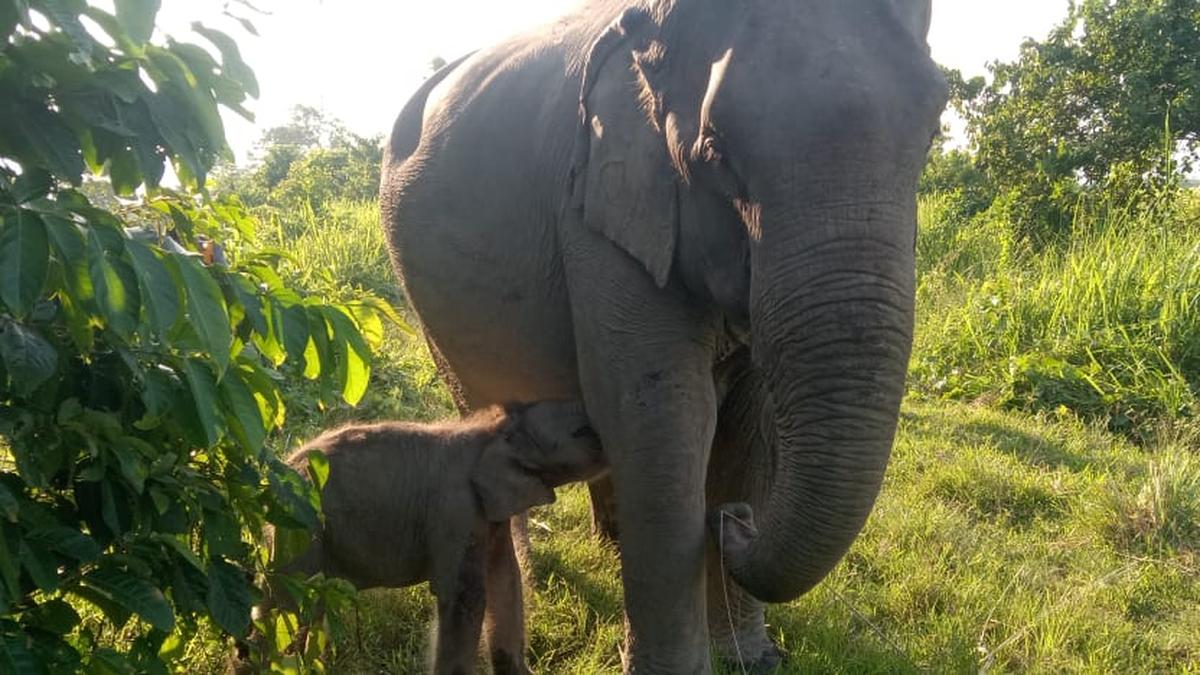Home / Environment / Assam Elephant Calf Named After Beloved Cultural Icon Zubeen Garg
Assam Elephant Calf Named After Beloved Cultural Icon Zubeen Garg
5 Oct
Summary
- Newborn female elephant calf named Mayabini to honor late Assamese singer Zubeen Garg
- Calf born to 40-year-old elephant Kuwari at Kaziranga National Park
- Migratory painted stork spotted in Kaziranga after 3-year absence

On October 4, 2025, a female elephant calf was born to one of the oldest elephants serving the Assam Forest Department at Kaziranga National Park and Tiger Reserve. The calf, named Mayabini, was born to Kuwari, a 40-year-old elephant who has been with the park since 1986.
The name Mayabini was chosen with "immense affection and public goodwill" to honor the late Assamese cultural icon Zubeen Garg, who passed away in Singapore on September 19, 2025. Mayabini is the second offspring of Kuwari, who previously gave birth to a calf named Griharaj a few years ago.
In a separate development, the Kaziranga authorities have reported the sighting of the migratory painted stork (Mycteria leucocephala) in the national park after a gap of three years. The large wading bird, classified as near threatened by the IUCN, was last spotted in Kaziranga during the migratory waterfowl census in 2022. The recent sighting of a pair of painted storks on October 3, 2025, coincides with the arrival of winter migratory birds in the park, which is a UNESCO World Heritage Site known globally for its one-horned rhinos and tigers.




